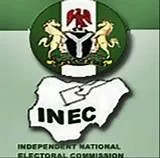
MOST NIGERIAN POLITICAL PARTIES LACK FUNCTIONAL IDEOLOGY – INEC
The Independent National Electoral Commission (INEC) has said that most political parties in Nigeria operate without a clear or functional ideology
The commission noted that this absence of ideology undermines internal democracy, fuels electoral crises, and erodes public trust in the political and governance system.
INEC National Commissioner, Prof. Kunle Ajayi, stated this on Wednesday in Abuja at the public presentation of the Political Party Performance Index (PPPI) developed by the Westminster Foundation for Democracy (WFD) and the newly adopted Inter-Party Advisory Council (IPAC) Constitution.
He said the commission has observed with concern that while many parties submit ideological statements as part of their registration requirements, they fail to uphold or implement them after approval.
According to him, political parties are expected to function as institutions that articulate the collective interests of the people, but they have instead become platforms for elite power struggles.
He said: “There are so many requirements organisations have to meet before we can register them as political parties. Number one, you have to submit an application. And within the application, you have to tell us where is your office, who are the protem chairman and secretary.
“Then you have to tell us your symbol. You have to tell us your acronym, and so on. All those things must be there before we can approve.
“But as you have rightly said, many of the political parties are lacking in ideology. Not that they won’t include it as part of their supportive requirements in the application, but following through and implementing their ideology is a problem.
“But anybody can submit an ideology, but do they follow it up after registration? That is what we are going to follow up.”
He added that INEC is developing new frameworks to monitor and enforce internal compliance with party constitutions, particularly as the 2027 general elections approach.
The Political Party Performance Index (PPPI), developed by WFD, presents an assessment of party performance in Nigeria.
Measuring across three critical dimensions—inclusivity, legal compliance, and public outreach- the report revealed a striking disconnect between what political parties claim and the reality experienced by members and the public.
The report observed that while parties self-rated an average of 82.4 per cent on inclusivity, members gave a lower score of 67.6 per cent, and the public rated them at a dismal 45.9 per cent on outreach.
Speaking, Minority Leader of the House of Representatives, Kingsley Chinda, linked the absence of ideology to rampant defections and opportunistic coalitions across party lines.
Chinda, referencing scholars like Larry Diamond and Said Adejumobi, argued that political parties in Nigeria have become instruments of elite control rather than channels of democratic expression.
He said, “I keep saying that because you don’t have a political ideology, it is easy for members of parliament to defect from one party to the other.
“Because of a lack of political ideology, it is easy for politicians from different political parties and supposedly different political backgrounds to come together to form what is called a coalition. So, what is the ideology of the coalition?
“I think that whilst blaming ourselves, that’s politicians, the time has come for us to think of how to tackle that problem.”
He said the PPPI is a timely intervention and urged all stakeholders to treat its findings as a blueprint for reform.
The newly adopted IPAC Constitution, unveiled at the event, includes a landmark gender and social inclusion clause that mandates the equitable representation of women, youth, and persons with disabilities across party structures.
On his part, IPAC Chairman, Yusuf Dantalle, hailed the document as a step toward restoring discipline and transparency within party systems.
He said that strong, transparent, and citizen-responsive political parties are essential to consolidating Nigeria’s democracy.
 Premium News
Premium News